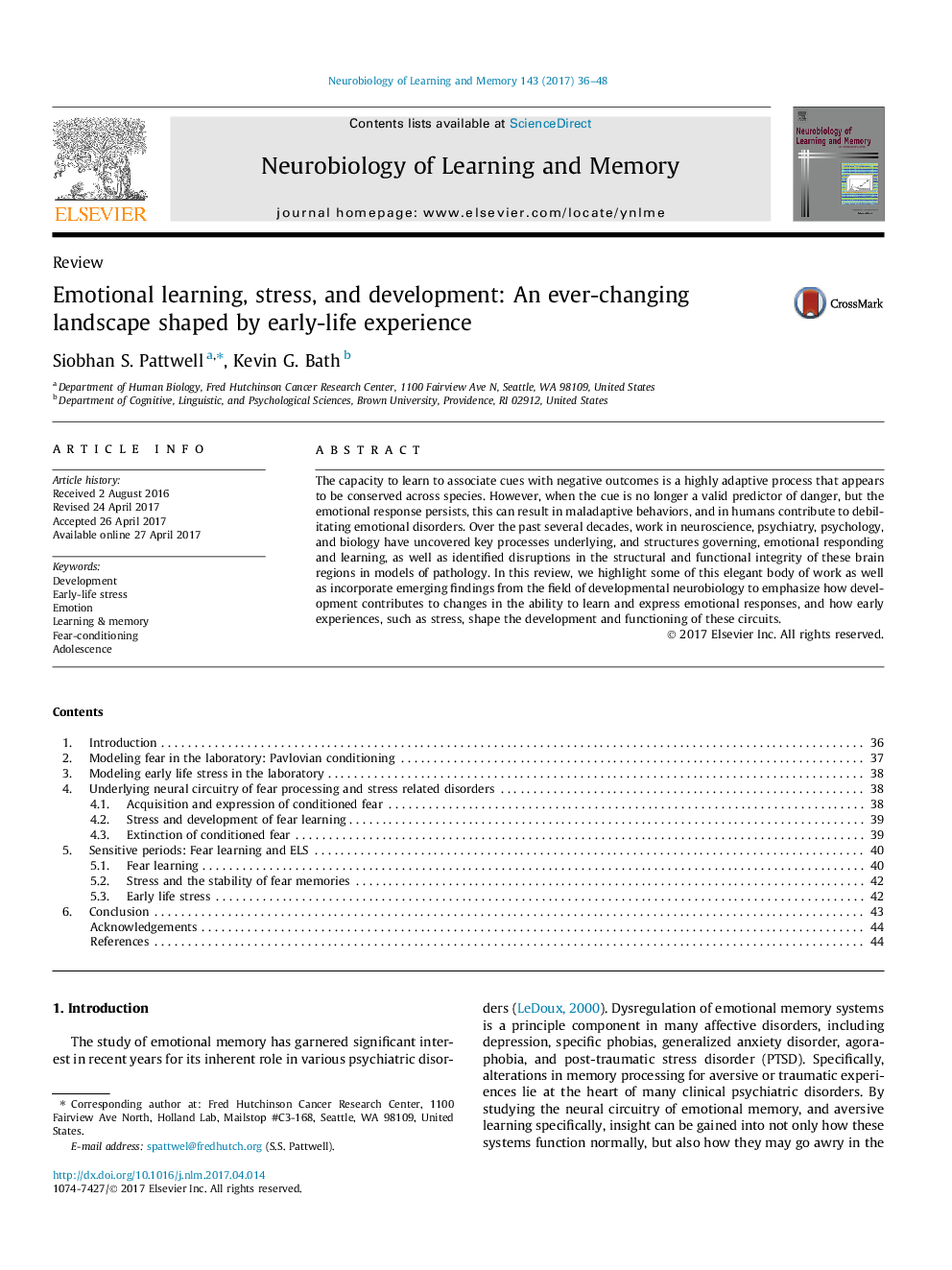| Article ID | Journal | Published Year | Pages | File Type |
|---|---|---|---|---|
| 5043153 | Neurobiology of Learning and Memory | 2017 | 13 Pages |
â¢Development of fear learning is a dynamic process that changes dramatically across early life.â¢Neural centers undergo complex non-linear connectivity changes across postnatal development.â¢Development of these centers regulating fear learning is highly sensitive to early environment.
The capacity to learn to associate cues with negative outcomes is a highly adaptive process that appears to be conserved across species. However, when the cue is no longer a valid predictor of danger, but the emotional response persists, this can result in maladaptive behaviors, and in humans contribute to debilitating emotional disorders. Over the past several decades, work in neuroscience, psychiatry, psychology, and biology have uncovered key processes underlying, and structures governing, emotional responding and learning, as well as identified disruptions in the structural and functional integrity of these brain regions in models of pathology. In this review, we highlight some of this elegant body of work as well as incorporate emerging findings from the field of developmental neurobiology to emphasize how development contributes to changes in the ability to learn and express emotional responses, and how early experiences, such as stress, shape the development and functioning of these circuits.
